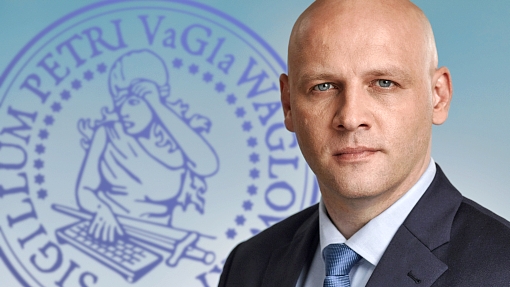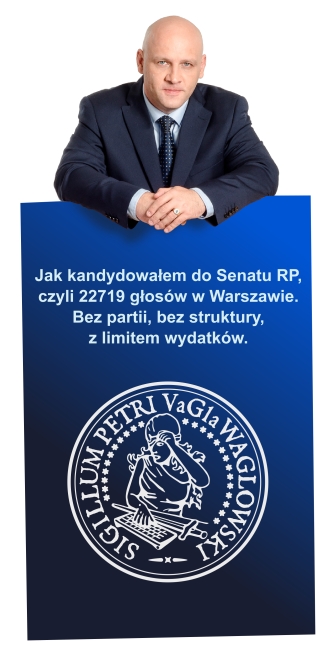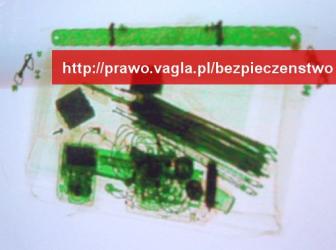Zakopane.eu
Sąd Arbitrażowy ds. Domen europejskich w Pradze wydał wyrok unieważniający rejestrację domeny Zakopane.eu na rzecz firmy Depmarc.
Jak pisze Dariusz Czuchaj w swoim blogu: "Przypomnijmy, że Zakopane zostało uprzedzone w złożeniu wniosku o rejestrację domeny przez firmę Depmarc, która wnosiła o przyznanie jej domeny na podstawie zarejestrowanej nazwy handlowej „Z&A&K&O&P&A&N&E”. Urząd Miasta zdecydował się skorzystać z możliwości zaskarżenia decyzji Eurid o rejestracji domeny i skarga ta została uznana za zasadną. Teraz rozpatrywany będzie wniosek urządu miasta o rejestrację domeny na jego rzecz i o ile nic nadzwyczajnego się nie zdarzy domena zostanie przyznana miastu"
Discussion and Findings
The Panel noted that Gmina Miasto Zakopane as the Domain Name applicant is different from Urząd Miasta Zakopane as the Complainant. From the online information sources the Panel consulted in this respect (pursuant to Section B 7 (a) of the ADR Rules) it appears to the Panel that Gmina Miasto Zakopane is the self administration unit while Urząd Miasta Zakopane is the office of such unit. It may very well be that according to Polish administrative law an „Urząd“ is authorized to act on behalf of a „Gmina“, however, the Panel is not in position to ascertain whether such assumption is correct. The Panel however decided not to investigate further into this discrepancy as it does not preclude the Panel from taking the decision on the Complaint. The right to initiate the ADR proceedings against the Registry is vested in “any party” (Article 22 (1) of the Public Policy Rules), “any interested party” (Section 22 (2) paragraph 2 of Sunrise Rules), “the Applicant or any other interested party” (Section 26 (1) of the Sunrise Rules), “any person or entity” (Section B (1) (a) of the ADR Rules). Notwithstanding the ambiguity of the aforesaid provisions (which would most probably have to be resolved in favor of Public Policy Rules) the Panel concludes that under the circumstances of the case at hand the Complainant would have to be regarded as an interested party with respect to the registration of the Domain Name. Therefore the Panel went on examining the merits of the case.
First, having regard to the documentary evidence presented by Depmarc itself in the course of Domain Name registration process, the Panel is convinced that the Depmarc’s registration of the Domain Name is apparently abusive and the Panel had a great difficulty to find any other motivation for Depmarc to register the Domain Name than prima facie cybersquatting. On the other hand the Panel understands that the sole purpose of the proceedings against the Registry is to verify whether the decision of the Registry conflicts with the Public Policy Rules or Regulation (EC) No. 733/2002 and cannot be used for protection against speculative or abusive domain name registrations (as it ensues from Article 22 (11) paragraph 2 of the Public Policy Rules, Section 26 (2) of the Sunrise Rules and as it was correctly stated by the Panels in the ADR proceedings no. 12 (EUROSTAR), 191 (AUTOTRADER), 323 (BEAUTY and others) and several other subsequent decisions. Therefore the scope of review of the Decision by the Panel is limited to verifying whether the Registry complied with Public Policy Rules and Regulation (EC) No. 733/2002 when rendering the Decision. For the same reason, the Panel also cannot examine whether the Depmarc’s behavior violated the contract with the Registry.
The Complainant asserts that the Decision conflicts the Public Policy Rules in the following two respects:
(a) Article 11 pargraph 2 of the Public Policy Rules was not complied with; and
(b) the prior right to the trade name Z&A&K&O&P&A&N&E was not sufficiently demonstrated by Depmarc.
The Respondent joins the Complainant on the argument under (b) above, however disagrees with the argument under (a) above.
The Panel does not find the breach of Article 11 paragraph 2 of the Public Policy Rules, however, the Panel concurs with the Complainant and the Respondent that the public use of the trade name Z&A&K&O&P&A&N&E was not sufficiently demonstrated by Depmarc.
With respect to the asserted breach of Article 11 paragraph 2 of the Public Policy Rules, the Panel finds the following. Article 11 (2) of the Public Policy Rules reads:
“Where the name for which prior rights are claimed contains special characters, spaces, or punctuations, these shall be eliminated entirely from the corresponding domain name, replaced with hyphens, or, if possible, rewritten“.
In the Panel’s view this provision does not prefer any transliteration method of special characters to another. The wording “if possible, rewritten” does not mean that anytime it is possible to rewrite a special character, the applicant must do so and is precluded from the other two transliteration options. The wording “if possible, rewritten” actually means that this option is only available in cases where there is a common and generally accepted way to rewrite such character (as it is, for example, possible and generally accepted to rewrite “&” with “and”). However in cases where the rewriting is available it does not prevail over the other two transliteration options. Therefore the Panel respectfully disagrees with the view of some other Panels (for example the Panel in case no. 394 (BARCELONA)) that the Public Policy Rules require rewriting of the special character as a method of transliteration, in any case where such rewriting is possible.
On the other hand, it must be emphasized that, pursuant to Article 10 (2) of the Public Policy Rules, the registration of a domain name in Sunrise Period must consist of the registration of the complete name, for which the prior right exists (the identity rule). The question arises whether the three transliteration methods available according to Article 11 paragraph 2 of Public Policy Rules are equally compliant with the identity rule in any given case. The Panels in previous ADR cases appear to differ on this issue. According to the first view, expressed by the Panel in ADR case no. 265 (LIVE) and 394 (FRANKFURT), it is possible that some of the transliteration methods according to Article 11 paragraph 2 of Public Policy Rules may, in particular case, comply with the identity rule, while other may not, and it is the duty of validation agent to examine the choice made by the applicant. According to the second view, expressed by the Panels in ADR cases no. 188 (123.eu), 1867 (OXFORD) and 2416 (TIMESONLINE), Article 11 paragraph 2 of the Public Policy Rules provides for three equally appropriate transliteration methods, choice among them is with the applicant, and the identity rule is complied with in any case regardless of which one of these methods is chosen. The Panel in the case at hand adheres to the latter view. Should the possibility exist that any of the transliteration methods according to Article 11 paragraph 2 of the Public Policy Rules be incompliant with the identity rule and that the compliance of the transliteration method chosen by the applicant with the identity rule would have to be examined by the validation agent, the Public Policy Rules would have to expressly state so. Instead, Article 10 (2) of the Public Policy Rules sets forth the identity rule while Article 11 paragraph 2 of the Public Policy Rules further clarifies the identity rule by stating that in cases where the prior right contains special characters the identity rule is complied with by either elimination, hyphenation or rewriting of these special characters. Nothing in the said Articles or in any other provision of Public Policy Rules can be interpreted in the way that the choice of transliteration method shall be subject to any examination by the validation agent or the Registry as to its compliance with the identity rule.
Therefore it must be concluded that Article 11 (2) of the Public Policy Rules provides for three equally appropriate methods of transliteration of special characters, the choice among them is with the applicant and the validation agent is not empowered to examine such choice.
The Panel concurs with the Complainant as well as with the Respondent that the documentary evidence submitted by Depmarc has not sufficiently demonstrated the public use of the trade name Z&A&K&O&P&A&N&E. According to Section 16.5 of the Sunrise Rules, if a trade name is subject to registration in official register, the applicant must submit an extract from that register and proof of public use of the asserted trade name. Therefore, a conclusion has to be drawn that not mere registration in the public register but also the actual public use of the trade name must be documented in order for the domain name application to be accepted in the Sunrise Period. Depmarc submitted couple of screenshots from an obscure website, the invoice for hosting of such website and the business card. The Panel is of the view that such documents are clearly insufficient to demonstrate the public use of the trade name Z&A&K&O&P&A&N&E. In addition to the above, the validation agent, even when exercising prima facie review of the documentary evidence (Section 21 (2) of the Sunrise Rules), should have noticed that, according to the extract from the official register maintained by the Chamber of Commerce in Amsterdam, Depmarc registered 23 “trade names” most of which consist of famous names (cities or other companies) with ampersand between each letter; such fact alone casting a great amount of doubt on the actual public use of such “trade names”.
For the foregoing reasons the Panel decided to annul the Decision. The Panel is also aware that in the proceedings against the Registry the Panel is not empowered to order direct attribution of the domain name to the next applicant in queue as such attribution is subject to the regular validation procedure. As stated above, it is also doubtful, whether the Complainant (Urząd Miasta Zakopane) is the same entity as the next applicant in queue for the Domain Name (Gmina Miasto Zakopane). Therefore the Panel limited itself to annulment of the Decision. The Registry will subsequently decide whether or not to register the Domain Name in the name of the next applicant in the queue (Section 27 (1) paragraph 2 of the Sunrise Rules).
W efekcie Panel podjął decyzję o anulowaniu wcześniejszej decyzji EURID.
- Login to post comments
Piotr VaGla Waglowski

Piotr VaGla Waglowski - prawnik, publicysta i webmaster, autor serwisu VaGla.pl Prawo i Internet. Ukończył Aplikację Legislacyjną prowadzoną przez Rządowe Centrum Legislacji. Radca ministra w Departamencie Oceny Ryzyka Regulacyjnego a następnie w Departamencie Doskonalenia Regulacji Gospodarczych Ministerstwa Rozwoju. Felietonista miesięcznika "IT w Administracji" (wcześniej również felietonista miesięcznika "Gazeta Bankowa" i tygodnika "Wprost"). Uczestniczył w pracach Obywatelskiego Forum Legislacji, działającego przy Fundacji im. Stefana Batorego w ramach programu Odpowiedzialne Państwo. W 1995 założył pierwszą w internecie listę dyskusyjną na temat prawa w języku polskim, Członek Założyciel Internet Society Poland, pełnił funkcję Członka Zarządu ISOC Polska i Członka Rady Polskiej Izby Informatyki i Telekomunikacji. Był również członkiem Rady ds Cyfryzacji przy Ministrze Cyfryzacji i członkiem Rady Informatyzacji przy MSWiA, członkiem Zespołu ds. otwartych danych i zasobów przy Komitecie Rady Ministrów do spraw Cyfryzacji oraz Doradcą społecznym Prezesa Urzędu Komunikacji Elektronicznej ds. funkcjonowania rynku mediów w szczególności w zakresie neutralności sieci. W latach 2009-2014 Zastępca Przewodniczącego Rady Fundacji Nowoczesna Polska, w tym czasie był również Członkiem Rady Programowej Fundacji Panoptykon. Więcej >>








hm...
Witam,
Jestem właścicielem domeny ***.eu (jest m. in. taka dzielnica w Warszawie). Jednocześnie to moje nazwisko. Ciekawe, czy to mnie dotyczy? Przecież nosząc nazwisko mam pełne prawo do domeny!
pozdrawiam serdecznie,
Wojciech
Nie dotyczy :)
Posiadanie nazwiska tożsamego z nazwą domeny jest uznawane za jedno z praw pierwszeństwa do domeny. Poniżej wycinek z rozporządzenia 874/2004, art 10 -
Holders of prior rights recognised or established by
national and/or Community law and public bodies shall be
eligible to apply to register domain names during a period of phased registration before general registration of. eu domain starts.
‘Prior rights’ shall be understood to include, inter alia, registered national and community trademarks, geographical indications or designations of origin, and, in as far as they are protected under national law in the Member-State where they are held: unregistered trademarks, trade names, business identifiers, company names, family names, and distinctive titles of protected literary and artistic works.
Posiadanie domeny o takiej nazwie jest ponadto oczywistym przykładem posiadania prawnie uzasadnionego interesu.
pozdrawiam
Steven Bioton ;)
Domena polskibelfast
Witam
Posiadam domene polskibelfast.co.uk, ale domena polskibelfast.pl nalezy do Stowarzyszenia Polskiego w Irlandii Północnej.
Pytanie
Czy oni maja wieksze prawo do slow "polskibelfast" i moga odemnie wymagac odstapienia domeny? Chcialbym takze podkreslic ze nie bawie sie w cybersquatting i uzywam domeny zgodnie z "przeznaczeniem" - jest a raczej byl tam serwis internetowy dla Polakow w Belfascie - teraz jest tylko przekierowanie do google.
Pozdrawiam
Karol M
Dobre pytanie, np. także w
Dobre pytanie, np. także w przypadku ciekawego pomorskiego nazwiska Laser. Domena Laser.eu też już istnieje (bodajże to branża chirurgii kosmetycznej).